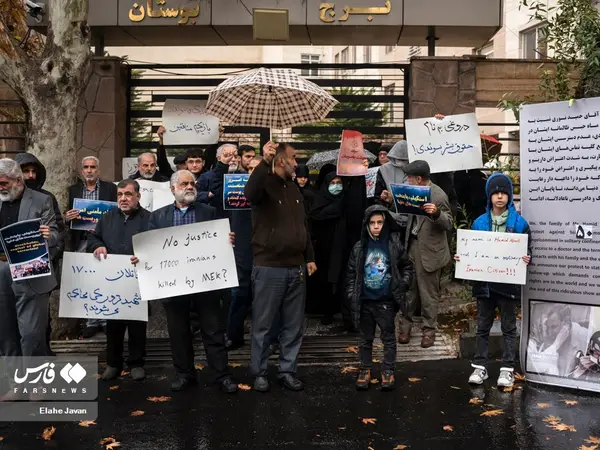Iran has accused the Stockholm Court of Appeals in Sweden of bias by upholding the life sentence of a former jailor for his role in the 1988 prison killings.
Reiterating the official line that Sweden prosecuted and convicted Hamid Nouri on the basis of false allegation by the exiled opposition group Mujahedin-e Khalq Organization (MEK), the official news website IRNA claimed that Sweden has violated Nouri’s human rights. The website reflecting the government's position alleged that Sweden tortured Nouri by keeping him in solitary confinement and “repeatedly moving him between detention centers”, and putting another prisoner with “serious mental issues” in his cell.
The Iranian foreign ministry has not yet reacted to the Stockholm Court of Appeals decision on Tuesday, which came after months of examining evidence and deliberation.
In a statement, 452 Iranian activists and members of victims’ families welcomed the court’s decision, calling it a “huge victory for the Iranian justice movement.” They believe it paves the way for bringing the regime and other violators of human rights to justice in the future.
“Let us remind that in the summer of 1988, Ebrahim Raisi, who is the president of the Islamic Republic with [Supreme Leader Ali] Khamenei’s firm support, was among the members of the death committee, of which Hamid Nouri was an agent,” the statement said.
Nouri, arrested upon arrival in Sweden in November 2019, was convicted by a Swedish court in July 2022 and sentenced to life for human rights violations as a prison official in the 1980s.
Plaintiffs in the case alleged that Hamid Nouri, 61, an assistant prosecutor and a member of the execution committee at Gohardasht Prison near Tehran, played a key role in the torture, execution, and secret burial of thousands of prisoners, including members of the Mujahedin-e Khalq Organization (MEK) and various Marxist groups, in the summer of 1988. In court, Nouri denied any connection with the executions.
Many, including UN Special Rapporteur on Extra-Judicial Executions Agnes Callamard, called his arrest an "important first step towards justice for the 1988 massacre." This marks the first time someone has been charged in relation to the events that took place in 1988 in Iran and prosecuted in another country.
The execution of thousands of political prisoners, which occurred over a few weeks, is often considered one of the darkest secrets in the history of the Islamic Republic. Many victims, initially sentenced to prison, were executed when they refused to denounce their beliefs.
The regime clandestinely buried victims in unmarked, mass graves. Families were often informed months after the executions and kept unaware of the graves' locations. The regime has prohibited the erection of gravestones at these sites, and family members visiting the mass graves are frequently harassed. Security agents even uproot trees planted by family members to mark the graves.
The decision to purge political prisoners was taken at the highest level and was endorsed by Ayatollah Ruhollah Khomeini, the founder of the Islamic Republic. Khomeini's chosen successor, Ayatollah Hossein-Ali Montazeri (1922-2009), who protested the massacre and called it a crime against humanity was demoted by Khomeini. Montazeri spent several years under house arrest after Khomeini's death in 1989 for criticizing the new successor, Supreme Leader Ali Khamenei, and questioning his legitimacy.
International affairs and human rights deputy of the Iranian judiciary, Kazem Gharibabadi, in July accused Sweden of taking Nouri “hostage” and demanded his release while alleging that Sweden had no evidence against Nouri and was only defending the interests of MEK.
A Swedish EU diplomat, 33-year-old Johan Niels Floderus who was put on trial in December , and a 52-year-old Swedish-Iranian doctor, Ahmadreza Djalali (Jalali), are currently being held in Iran on charges of spying for Israel. Iranian authorities have several times threatened to execute Djalali, allegedly to force Sweden to release Nouri, and brought charges against Floderus that entail a death sentence.
